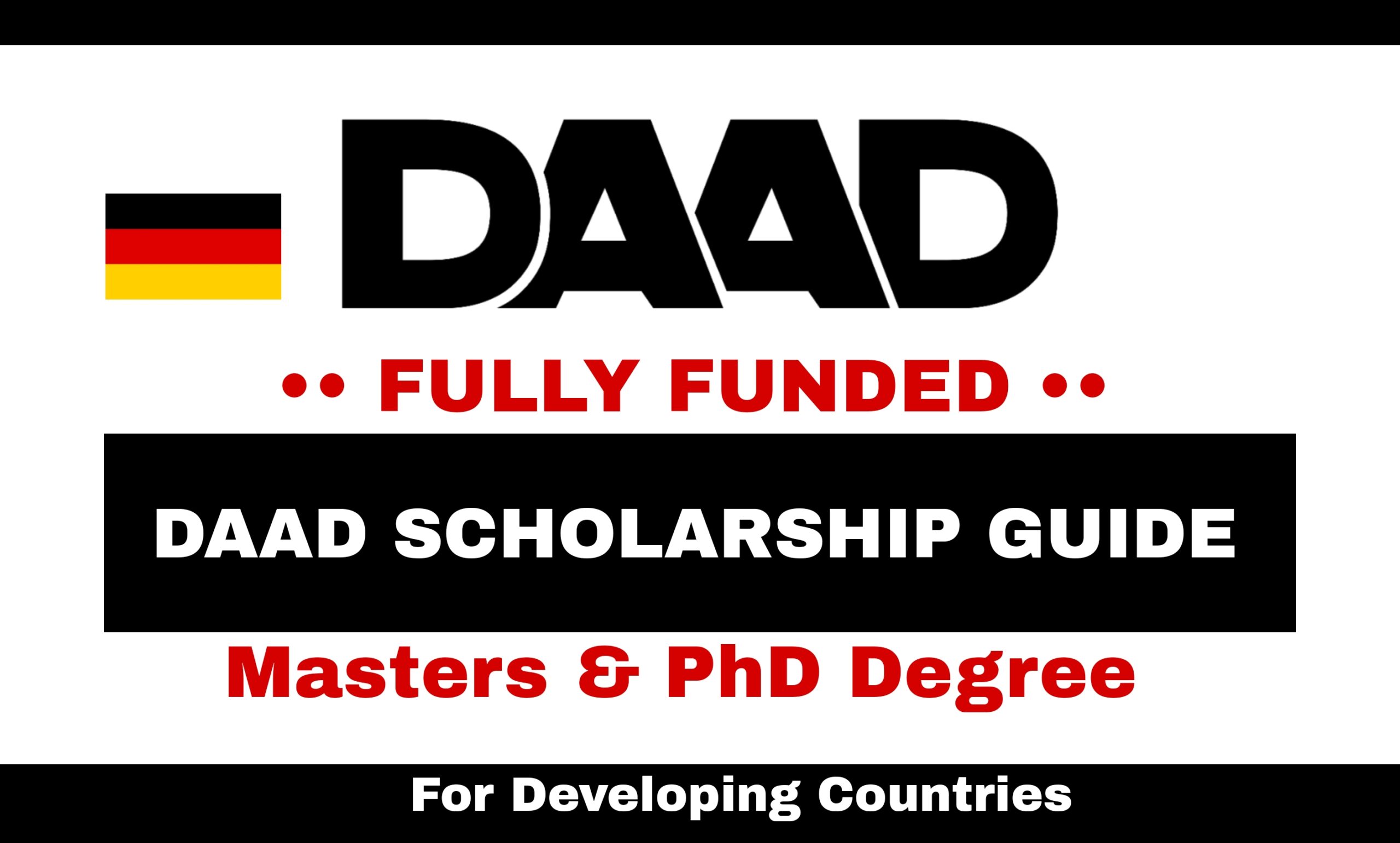Looking for a fully funded master’s or PhD in Germany as a student from a developing country? The DAAD Scholarship is one of the world’s most prestigious government-funded programs. It offers free tuition, a generous monthly stipend, and access to globally ranked German universities—all designed to help you become a leader in development, science, policy, and innovation.
Advertisements
Why Choose the DAAD Scholarship?
The DAAD (German Academic Exchange Service) supports over 100,000 international students annually, particularly those from developing and emerging economies. It’s more than financial support—it’s a launchpad for impact and international recognition.
Advertisements
Top Benefits:
- Free tuition at top public German universities
- Monthly stipend (€934–1,200)
- One-time travel grant
- Health insurance included
- Study & research support
- Optional German language prep (up to 6 months)
Visit the official DAAD website
DAAD Scholarship at a Glance
| Feature | Details |
|---|---|
| Funded by | German Academic Exchange Service (DAAD) |
| Degree Levels | Master’s & PhD |
| Fields | All disciplines (STEM, Social Sciences, Arts, etc.) |
| Eligible Countries | 150+ via OECD-DAC list |
| Monthly Stipend | €934 (Master’s), €1,200 (PhD) |
| Deadline | August–October (varies by course) |
| Official Portal | daad.de/en |
What Does the DAAD Scholarship Cover?
| Benefit | Master’s | PhD |
| Tuition Fees | Free | Free |
| Monthly Stipend | €934 | €1,200 |
| Travel Grant | Included | Included |
| Health Insurance | Included | Included |
| Research Allowances | Included | Included |
| Language Preparation | Optional (up to 6 months) | Optional |
Who Can Apply for the DAAD Scholarship?
You must be from a developing or emerging country listed on the OECD-DAC list, such as
Africa: Nigeria, Kenya, Ghana, Ethiopia
Asia: India, Pakistan, Indonesia, Bangladesh
Middle East: Egypt, Jordan, Palestine
Latin America: Brazil, Colombia, Peru
General Eligibility:
- Bachelor’s degree (minimum GPA: 2.1 or equivalent)
- At least 2 years of work experience (for EPOS)
- Demonstrated commitment to development
- English language proficiency (TOEFL/IELTS)
- Motivation to return home after studies
Check your eligibility by region
How to Apply for the DAAD Scholarship
Step 1: Choose Your Course
Use the DAAD EPOS Course List to find eligible programs.
Step 2: Prepare Documents
- CV in Europass format
- Motivation letter (clearly showing development relevance)
- Academic transcripts & certificates
- Proof of 2+ years’ work experience (EPOS)
- TOEFL/IELTS test results
- Two academic/professional references
Step 3: Apply through the university. Most DAAD scholarships are submitted directly through the university offering the program. Each course has a specific deadline.
Step 4: Attend an Interview (Optional) Shortlisted applicants may be invited for interviews.
DAAD Scholarship Timeline
| Stage | Timeline |
| Application Opens | August |
| Deadline (varies) | August–October |
| Shortlisting Begins | January–March |
| Final Selection | April–June |
| Course Start | September–October (following year) |
DAAD Motivation Letter Tips
Your motivation letter is crucial. It should:
- Explain why Germany and this course align with your goals
- Show your contribution to development back home
- Highlight relevant academic and professional experience
Suggested structure:
- Introduction (background + motivation)
- Academic & work experience
- Why this course fits
- Impact plan & country benefit
Use the STAR method (Situation, Task, Action, Result) to tell powerful stories.
Top Universities Hosting DAAD Scholars
You don’t need a “top 5” name—impact matters more:
- University of Bonn—Development Studies
- TU Berlin—Urban Planning
- University of Oldenburg—Renewable Energy
- University of Leipzig—Global Studies
- University of Stuttgart—Infrastructure Engineering
Use the DAAD Program Finder to explore 2,000+ programs.
What DAAD Looks For
- Strong academic record (first or second class upper)
- Clear development-focused career goals
- Impact-driven work experience
- Motivation to return and create change
Acceptance Rate:
- EPOS Master’s: ~2–5%
- PhD Research Grants: ~10–15%
Alumni Advice
“DAAD transformed my public health career. I now lead a WHO project in Nairobi.” – Grace O., Kenya
“Tailoring my motivation letter made all the difference.” – Ravi P., India
“DAAD isn’t just for STEM—my arts degree from Leipzig opened global doors.” – Fatima B., Nigeria
Common Mistakes to Avoid
- Copying generic motivation letters
- Applying to non-eligible programs (like MBAs)
- Ignoring individual program deadlines
- Weak or vague recommendations
- Skipping the 2-year work requirement (EPOS)
FAQs – DAAD Scholarship for Developing Countries
Q: Do I need to know German?
A: No. Many DAAD-funded programs are fully in English.
Q: Can I work part-time?
A: Yes. Students can work up to 120 days/year under German student visa law.
Q: Does DAAD charge an application fee?
A: No. DAAD does not charge any fees or use agents.
Q: Is DAAD open to non-STEM majors?
A: Absolutely—DAAD funds social sciences, policy, arts, and humanities too.
Didn’t Get DAAD? Explore These Alternatives
- Chevening Scholarships—UK
- Fulbright Foreign Student Program—USA
- MEXT Scholarships—Japan
- Erasmus Mundus Joint Master’s Degrees
Related Scholarship Guides
Conclusion
The DAAD Scholarship is one of the best fully funded study opportunities for international students committed to development and academic excellence. If you’re from a developing country and want to study in Germany, this is your moment to rise.
Apply boldly. Prepare early. Lead globally.
Advertisements

